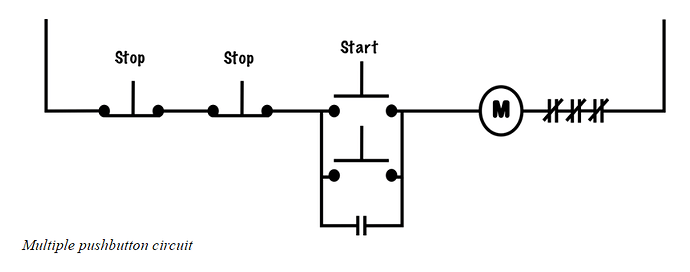This circuit is functionally identical to the three-wire circuit previously discussed, but allows control of the motor from two different locations, often called “local” and “remote” pushbutton stations.
As a rule, a motor can be controlled from any number of locations provided that we follow these simple rules:
- Wire all normally closed stop buttons in series with each other,
- Wire all normally open start buttons in parallel with each other, and
- Connect the holding contact in parallel with the start buttons.
For the above example, we will only consider two push-button stations, but the principle can be scaled up to include any number of pushbutton stations.
With all the control current going through the normally closed contacts of the stop buttons, pushing any one will interrupt the circuit and disconnect the motor starter. Pushing any start pushbutton will provide a path for current to energize the motor starter.
Once energized, the 2-3 holding contact will close, allowing the start button to be released, and the circuit will now run while providing low-voltage protection (LVP) until either an overload occurs or a stop button is pressed.
Reference
Basic Motor Control by Aaron Lee and Chad Flinn is used under a CC BY 4.0 Licence.
